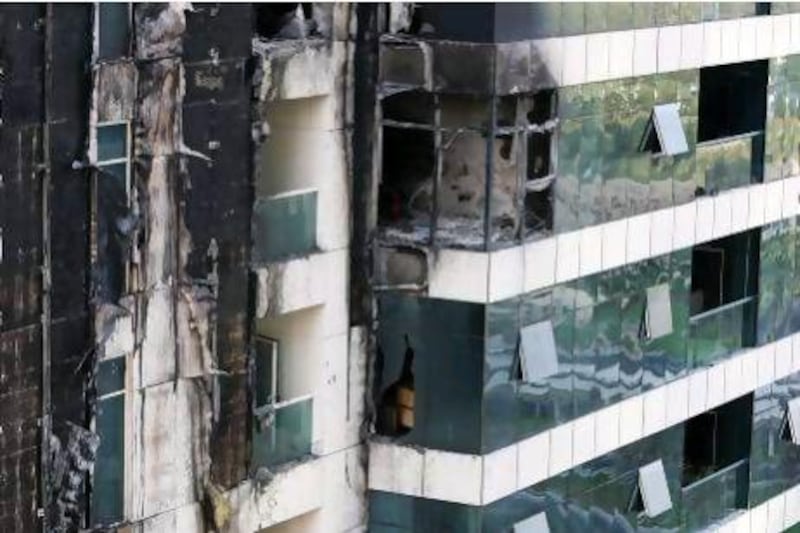DUBAI// Changes to building regulations over the years have led to potentially flammable aluminium panels being used in the UAE, although these are always subject to rigorous checks, experts say.
"The extent of a fire nowadays might be less because the rules are much more stringent than before. It does not prevent the fire from spreading out from the facade," said Barry Bell, the managing director of Wagner Fire Safety Management Consultants.
Tamweel Tower's cladding burned downwards in the early hours of Sunday morning, making hundreds of residents homeless.
Rules have been tightened and safety certifications are required for all materials, including aluminium cladding, before they can be used on any building, irrespective of it being located in a free zone.
This year, Dubai Civil Defence introduced the Fire and Life Safety code, which was rolled out nationwide in the summer.
Civil Defence officials in each emirate now carry out checks on residential buildings for fire hazards such as inadequate alarms systems or potentially flammable construction material that does not meet strict standards.
"It's not to say we are perfect. There are recent changes in codes and standards. There is an immediate response to every event that happens with immediate improvement," Mr Bell said.
It is believed 70 per cent of the buildings in the UAE have some form of facade cladding that has a combustible thermo-plastic core between two sheets of aluminium.
"If a fire spreads into the cavity of a facade, there's potential for materials, for moisture or thermal insulation [to catch fire], it does have a tendency to become molten and drops downwards. If it starts at the top it's very easy to spread down the cavity," Mr Bell said.
"In the past there was a lack of knowledge in the market that the product could burn like this. It burns extremely aggressively. The market didn't realise it was an issue," said Thomas Bell-Wright, chief technical officer for Thomas Bell-Wright international consultants.
All building materials in and outside of free zones in Dubai must be approved by the municipality.
S Prakash, procurement manager at Sunrays Metal Fabrication Company in Abu Dhabi, said there was a long list of approvals to go through before the company installs any cladding on buildings.
The material has to be pre-approved by the municipality, then the paperwork goes to the main contractor who hands it to the consultant. All papers approved by subcontractors are then resubmitted to the municipality on behalf of the consultant to get the all-clear to start building.






